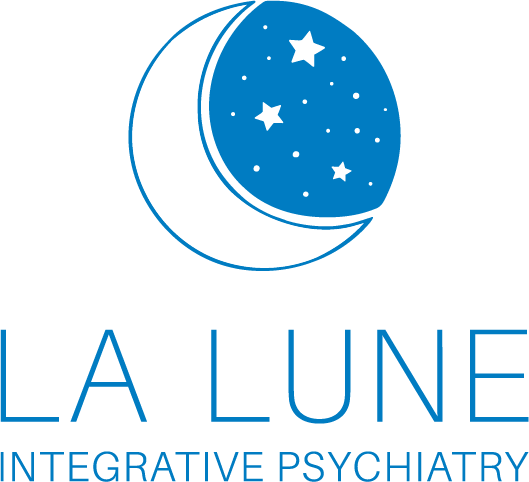Rethinking ADHD: Beyond Distraction and Disorder
Having worked in psychiatry for seven years, I’ve coached hundreds of people with ADHD — from students and artists to entrepreneurs and professionals.
What I’ve learned is that ADHD doesn’t define someone’s limits; it reveals their potential in unexpected ways.
For many people, ADHD isn’t a disorder to “fix,” but a different way of processing, feeling, and engaging with the world.
Those with ADHD can be some of the most curious, empathetic, and innovative thinkers you’ll meet. They can often deep-dive into complex topics, make connections others might miss, and bring a dynamic energy to whatever they care about. In the age of AI and constant change, this kind of flexible, creative, and non-linear thinking can be more valuable than ever.
ADHD Exists on a Spectrum
At the same time, ADHD can make certain parts of daily life harder — like managing time, prioritizing tasks, or staying fully tuned in during long conversations or meetings. These challenges aren’t about laziness or lack of discipline; they’re connected to real differences in how the brain’s attention and reward systems work.
Just like every condition in mental health, ADHD exists on a spectrum. Some people may struggle most with focus and organization, while others experience more emotional intensity, restlessness, or impulsivity. No two experiences of ADHD are exactly the same — and that’s part of what makes individualized care and self-understanding so important.
ADHD coaching and treatment isn’t about changing who you are — it’s about understanding how your brain works best, what you value, and how to channel your attention more intentionally. When that happens, ADHD can feel less like a daily struggle and more like a powerful way of thinking differently.
The Gift of Hyperfocus
Many people associate ADHD with distraction, but one of its paradoxical strengths is hyperfocus. When something captures genuine interest, people with ADHD can lose themselves in it for hours — often producing extraordinary insight or creativity.
While this can sometimes mean getting “stuck” in less productive loops (like gaming, researching, or overanalyzing), learning to notice what draws your focus is key. Coaching and therapy can help harness hyperfocus as a strength rather than a stressor — a tool for creativity, problem-solving, and flow.
Curiosity as a Superpower
Curiosity drives innovation. People with ADHD can be natural explorers — constantly scanning for what’s interesting, new, or meaningful. This same curiosity fuels breakthroughs in art, design, entrepreneurship, and science.
David Neeleman, founder of JetBlue, has spoken openly about his ADHD, crediting it for his ability to think creatively and challenge industry norms. Olympic gymnast Simone Biles has also shared her ADHD diagnosis publicly, reminding others that focus and excellence can look different for everyone.
(Sources: TIME, Washington Post)
Rethinking “Treatment”
ADHD support doesn’t have to mean suppressing your energy or creativity. Coaching and treatment can help you find systems that align with your strengths — not fight against them. That might mean learning to plan around energy peaks, practicing self-compassion during slower moments, or reframing what “productivity” looks like for you.
Many people with ADHD are used to being misunderstood or criticized for the way their brain works — told they’re lazy, careless, or unreliable when in reality, their challenges are rooted in biology, not character. When everyday differences are met with judgment instead of understanding, it can lead to guilt, shame, and low self-esteem.
ADHD coaching is meant to help clients become more forgiving toward themselves, understand their limitations with compassion, and communicate those differences clearly to others. When you learn to work with your brain — not against it — ADHD can become a source of resilience, creativity, and self-trust.
Next Steps Toward Clarity and Balance
If ADHD has been making life harder than it needs to be, you don’t have to keep struggling on your own.
Medication management, therapy, and/or ADHD coaching can all be tailored to your goals and lifestyle — not the other way around.
We’ll help you find the clarity, confidence, and systems that actually work for your brain.
A Note on Diagnosis
If you recognize yourself in these experiences, it’s important not to self-diagnose. ADHD can share symptoms with other conditions like anxiety, depression, or trauma-related stress, which require different approaches.
A licensed mental health professional — such as a psychiatrist or psychiatric nurse practitioner — can help you evaluate your symptoms, rule out other causes, and create a personalized treatment plan. Prescribers can also do a physical health assessment to see if there is anything else that can be causing attention issues, impulsivity, or executive functioning difficulties.
Understanding your brain starts with understanding your whole self — and that begins with an accurate assessment. At La Lune Integrative Psychiatry, we allow longer sessions to get to know you, order comprehensive lab tests, and can offer therapy and medication management in the same appointment–both covered by most insurance plans.
Let us know what your goals and needs are with this 5-minute intake form below, and we’ll match you with a provider today!
Disclaimer: This website does not provide medical advice and may be out of date. The information, including but not limited to text, PDFs, graphics, images, and other material contained on this website are for general educational purposes only. No material on this site is intended to be a substitute for professional medical advice, diagnosis, or treatment, and does not create a patient-doctor relationship. Always seek the advice of your qualified healthcare provider with any questions you may have regarding a medical condition, lifestyle or dietary changes, treatments, and before undertaking a new health care regimen. Never disregard professional medical advice or delay in seeking it because of something you have read on this website.






